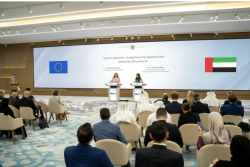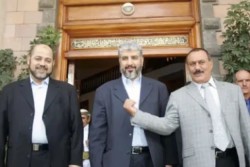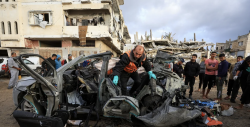Abu Bakr al-Baghdadi: IS leader's sister 'captured by Turkey'
- 2019-11-05 13:38:34


 Pierre Rayer: Art, Science, and Happiness: The Universal Mission of Transmission to Future Generations through Patronage at the Louvre Abu Dhabi
Pierre Rayer: Art, Science, and Happiness: The Universal Mission of Transmission to Future Generations through Patronage at the Louvre Abu Dhabi Ahly crowned Super champions after dramatic extra-time win over Modern Future FC
Ahly crowned Super champions after dramatic extra-time win over Modern Future FC Yemeni Honey..A Development Wealth Threatened By Conflict And Climate Change
Yemeni Honey..A Development Wealth Threatened By Conflict And Climate Change California wildfires: Millions warned of possible power cut
California wildfires: Millions warned of possible power cut Central African rebels launch attacks near capital
Central African rebels launch attacks near capital Yemeni Citizen Dies Under Torture in Houthi Prison in Amran
Yemeni Citizen Dies Under Torture in Houthi Prison in Amran Trump’s post on Rob Reiner sparks outrage from lawmakers and celebrities
Trump’s post on Rob Reiner sparks outrage from lawmakers and celebrities EU and UAE start talks on Strategic Partnership Agreement
EU and UAE start talks on Strategic Partnership Agreement Yemen : Leaked Call Reveals Ali Abdullah Saleh’s Criticism of Hamas Rocket Attacks
Yemen : Leaked Call Reveals Ali Abdullah Saleh’s Criticism of Hamas Rocket Attacks Trump says US is ‘looking into’ whether Israel breached Gaza ceasefire by killing Hamas
Trump says US is ‘looking into’ whether Israel breached Gaza ceasefire by killing Hamas
